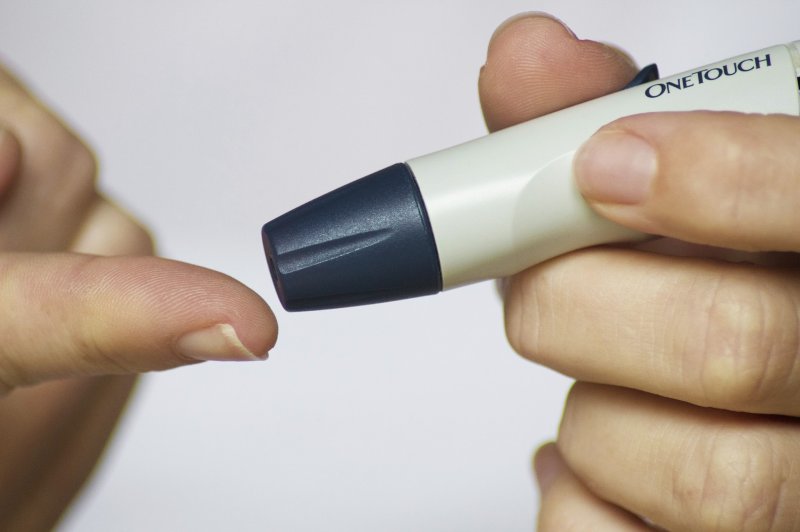A study found albiglutide resulted in fewer cardiovascular events in people with type 2 diabetes and existing heart disease compared with a placebo. Photo by Tesa Photography/Pixabay
Oct. 2 (UPI) -- Albiglutide, a diabetes drug which has been taken off the market in the United States and Europe, resulted in fewer cardiovascular events among type 2 diabetics with existing heart disease compared with a placebo, according to a study.
The research was sponsored by British-based GlaxoSmithKline, which last year announced plans to stop selling the injectable drug -- which is sold as Tanzeum in the United States and Eperzan in Europe. The company said it wants to sell the medication to another company, though not because of safety concerns.
Researchers from Italy and Britain published their findings Tuesday in the journal Lancet. Results also were presented at the European Association for the Study of Diabetes congress 2018 in Berlin.
Albiglutide is a glucagon-like peptide 1 receptor agonist approved by the U.S. Food and Drug Administration in 2014. Similar, and more popular, drugs are Eli Lilly's Trulicity and Novo Nordick's Victoza.
Patients with type 2 diabetes have been prescribed the drug, which is taken by injection once a week.
The study was initiated in 2015, before GSK announced it was phasing out the drug. The company stopped selling Tanzeum in July.
"Harmony Outcomes was an important study for us to complete to generate new data and insights about the role of the GLP-1 receptor agonist class in the management of patients with diabetes and cardiovascular disease," Dr John Lepore, senior vice president of GSK's research and development, said in a statement.
"GSK continued to invest in this study following a decision last year to cease all other activities on albiglutide, and we continue to explore opportunities to divest this medicine to a company with the right expertise and resources to realize its full potential for patients."
The study took place at 610 sites in 28 countries. Patients with type 2 diabetes and cardiovascular disease were randomly assigned to once-weekly injection of albiglutide or matching placebo, in addition to standard care.
Overall, 9,463 people were followed for a median of 1.6 years.
They found cardiovascular death, myocardial infarction or stroke occurred in 338 of 4,731 patients in the albiglutide group and in 428 of 4,732 patients in the placebo group. This represents a 22 percent reduced risk of this outcome in the albiglutide group.
Acute pancreatitis, pancreatic cancer, medullary thyroid carcinoma and other serious adverse events did not differ significantly between the two groups.
"We are very excited by these results which add to the evidence that certain GLP-1-receptor agonists reduce cardiovascular events in patients with type 2 diabetes," said Dr. Stefano Del Prato, of the Department of Clinical & Experimental Medicine at the University of Pisa in Italy. "This new therapeutic approach offers physicians a further means of reducing the most common and deadly complication faced by our patients with type 2 diabetes."
When used in patients with diabetes and CV disease, prior studies of GLP-1 receptor agonists had provided inconsistent results in potential benefit, GSK said.
The new study did not analyze other similar drugs to treat type 2 diabetes.
Despite price breaks, Glaxo was unable to move its market share with the drug. Also last year, PBM Express Scripts replaced Tanzeum from preferred formulary to Trulicity -- one of several moves the doomed the drug's success for GSK.
And unlike its competitors, GSK is not heavily focused on diabetes medicine.















